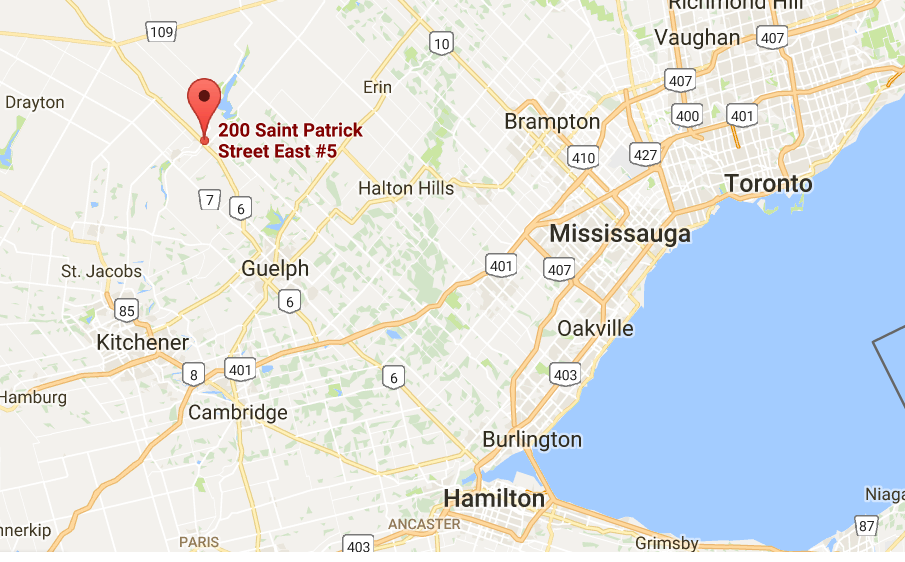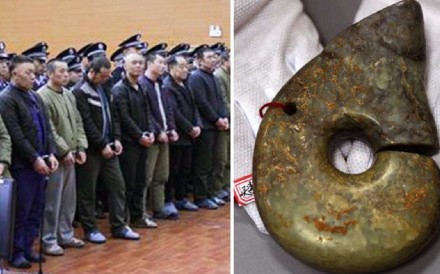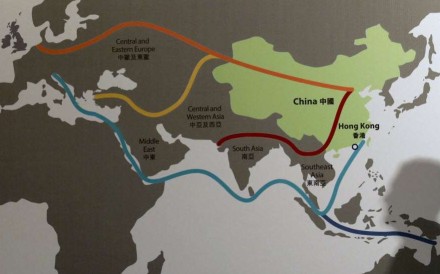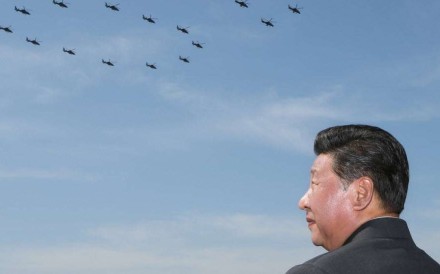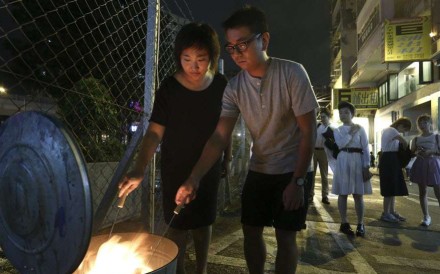@MichaelChongMP @StandFreeholder The feasible steps for improving Canada's health care system radically http://www.kwcg.ca/bbs/home.php?mod=space&uid=61910&do=blog&id=3758 …
日志
Michael Chong
||
@MichaelChongMP @StandFreeholder Set economic zones to avoid the harm of speculative real estate http://www.kwcg.ca/bbs/home.php?mod=space&uid=61910&do=blog&id=3964 …
@MichaelChongMP @StandFreeholder How to Quick invitation of global promising enterprises into Canada http://www.kwcg.ca/bbs/home.php?mod=space&uid=61910&do=blog&id=3966 …
@MichaelChongMP @StandFreeholder How to rescue Bombardier from the road-dust of failed RIM http://www.kwcg.ca/bbs/home.php?mod=space&uid=61910&do=blog&id=4032 …
@MichaelChongMP @StandFreeholder How to save Canada’s manufacturers from disappearing http://www.kwcg.ca/bbs/home.php?mod=space&uid=61910&do=blog&id=4140 …
@MichaelChongMP @StandFreeholder Good idea, but the key is at how to achieve it? Here is my idea.
Michael Chong's bid for Conservative leadership starts with a story
3rd contender for Conservative party helm touts 'new' leadership
By Aaron Wherry, CBC News Posted: May 16, 2016 12:31 PM ET Last Updated: May 16, 2016 7:40 PM ET
Toll Free: 1-866-878-5556
Email:michael.chong@parl.gc.ca
Fergus Office
200 St. Patrick St. East, Suite 5.
Fergus, ON (map)
N1M 1M4
Phone: (519) 843-7344
200 St. Patrick St. East, Suite 5. Fergus, ON
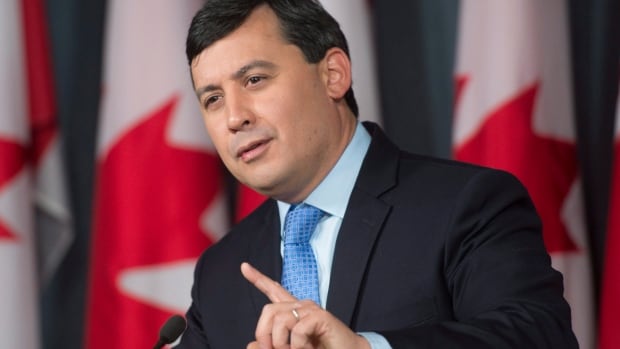
Conservative MP Michael Chong announces he will run for the leadership of the party during a news conference in Ottawa on Monday. (Adrian Wyld/Canadian Press)
Conservatives lost in 2015, according to the party's newest leadership candidate, because they didn't tell their story. And that's part of the reason he tells his story.
Michael Chong does have a good story. His father immigrated from China, his mother from the Netherlands. His father saw Canadian soldiers defending Hong Kong during the Second World War, his mother was liberated by Canadians.
- After Stephen Harper, Conservatives confront questions of style and substance
- Kevin O'Leary's Trump-like politics not welcome in Canada, says Michael Chong
- Michael Chong urges MPs to 'reclaim their influence' as Reform Act takes effect
"My father came here in 1952, five years after the Chinese Exclusion Act was repealed by the Parliament of Canada and those weren't easy years," Chong said last week.
At one point his father worked as a lumberjack. "He worked hard and he persevered and he built for himself and his family a life of opportunity. And I'm the beneficiary of that," Chong explained. "And so my family owes everything to this country. I literally would not be here today were it not for the sacrifice of Canadian soldiers in two theatres of war. I say that without any hint of hyperbole. It's a fact."
Chong told the story in February when he appeared at the Manning Centre's annual gathering of conservatives and he told it again last Friday during an interview in Ottawa and he told it again on Monday at a news conference to formally announce his leadership bid.
"It's time to tell our story," he told reporters, "Of why the Conservatives are the party for the people's hopes and aspirations."
The Conservative party, such as it currently exists, has only had one leader and after Stephen Harper it is a party to be newly defined or confirmed, or some combination thereof. Chong's is one entry in the contest to tell the party's story anew.
Chong says Conservatives need to learn from the Liberals2:05
Quitting cabinet and reforming Parliament
His own political story is potentially compelling.
Elected for the first time in 2004, he was included in Stephen Harper's first cabinet, but resigned less than eight months later when he decided he could not support Harper's motion to declare the Québécois a nation within Canada. Out of cabinet, he established himself as a voice for parliamentary reform and increasing the influence of backbench MPs, tabling the Reform Act in 2014 in hopes of curbing the power of party leaders.
Unlike the declared candidates (Maxime Bernier, Kellie Leitch) and many of the possible entrants, Chong comes to the race without the profile of a recent ministerial post. But perhaps there is something to be said for not being that closely associated with the government that was just thrown out of office.
He would seem to be a longshot as compared to presumptive front-runners like Jason Kenney and Peter MacKay, but his primary organizer has suggested he might be the best leader for a general election.

Chong running for Conservative leader9:20
'I present a change'
"I think I present a change from the Harper government, but I believe in a lot of what the Harper government did," he said.
The latter includes a commitment for balanced budgets, low taxes and expanded trade. The former includes an embrace of carbon pricing to reduce greenhouse gas emissions, though Chong says all revenue from a price on carbon should be used to reduce corporate and personal taxes.
He proposes a tax system that is "flatter," "simpler," and "fairer" — but not a flat tax — along with lower taxes. He would reduce the number of tax brackets and eliminate loopholes.
He believes the Conservative party should drop its official policy that defines marriage as between a man and a woman. His government would not introduce or support legislation to regulate abortion, but backbench Conservatives would be free to table bills and express their views.
He would not have proposed a tipline for the reporting of "barbaric cultural practices," but he supported the Harper government's attempt to ban the niqab during the swearing of the citizenship oath.

Conservative MP Michael Chong walks with his wife Carrie and sons Cameron, left, Alistair and William, right, to a news conference to announce he will run for the leadership of the party. (Adrian Wyld/Canadian Press)
'A rising new Canada'
"It's a campaign that will be characterized by ambitious new policies," he said of his effort, venturing that the government of Justin Trudeau is returning to the spending policies of the 1960s and 1970s.
Asked why he wants to be leader of the Conservative party, he uses the word "new" five times in the space of the first six sentences. And then, when asked about 2015, he says the party needs to attract "new people."
"I think I represent a new Canada, a rising new Canada," he said last week, claiming that in a few years more than half the country will be foreign born or with at least one parent who was born overseas. "The country is changing rapidly as a result of immigration and I think my family's story represents that new Canada. And so that will be a big part of my campaign, because I think as Conservatives we need to tell that story, we need to tell those stories because it will attract new people to our party."
The current prime minister likes to describe his government as "ambitious" and this focus on story sounds like a response to the phenomenon of Trudeau, the photogenic first Canadian leader of the social media era.
"I think it is the reality of politics today," Chong said. "That people are, in many ways, more closely connected to their leaders, to their elected officials, than they've ever been. And that's as a result of social media and the internet revolution."
His campaign was launched at the National Press Theatre, a venue the current prime minister embraced on the day after last fall's election in a gesture of change. And Chong arrived at his news conference with his wife and three young sons, whom he acknowledged and thanked at the outset.
Of course, Trudeau's story was a fabled tale. And even then it had to be well told and expanded for Trudeau to become prime minister.
Chong figures his family's "Canadian story" is also a "Conservative story," about working hard and persevering and counting one's pennies and investing in your children's future. It's an interesting story. It remains to be seen how well he can tell it and what he can make of it, but it's at least a start.
COULD THIS BE CANADA’S FIRST ETHNIC CHINESE PRIME MINISTER?
Michael Chong is taking a stand against ‘divisive social issues’ in his bid to become Tory leader and, one day, the country’s PM
Michael Chong, who wants to be the new leader of Canada’s Conservative Party and the country’s first ethnic Chinese prime minister, says his story starts in Hong Kong.
At a conference in February, Chong illustrated the point to a roomful of conservatives by showing two photos. He was sketching a vision for the party that would later see him launch his bid to replace ex-prime-minister Stephen Harper, who stepped down after losing last year’s federal election.
Canada’s former Tory PM Stephen Harper quits politics after 18 years in public service
One photo showed Chong with wife Carrie and their three boys on their farm outside Fergus, Ontario. The second, a black and white 1929 portrait, showed his grandparents and their children, stiffly posing in Chinese silks in a Hong Kong studio. Chong’s grandmother was pregnant at the time with his father, Paul.
 The grandparents of Canadian Conservative Party leadership contender Michael Chong, pictured in a Hong Kong studio in 1929 with their children. Chong’s grandmother was pregnant with his father at the time. File photo
The grandparents of Canadian Conservative Party leadership contender Michael Chong, pictured in a Hong Kong studio in 1929 with their children. Chong’s grandmother was pregnant with his father at the time. File photo
Twelve years after that photo was taken, Chong told his audience, his “Canadian story” began with the Battle of Hong Kong in December 1941, when the Royal Rifles of Canada tried in vain to defend the city against Japanese invaders. Impressed and touched, Paul Chong would set sail in 1952 to become a Canadian himself.
“My father never forgot the battle or the fact that Canadian soldiers came to the defence of him and his family,” Chong told This Week in Asia this month. “I remember him telling us about a poignant time between the end of the battle and before the prisoners were taken away to POW camps… He never forgot the sight of those Canadian soldiers sitting on the kerbstones.”
 A family photo taken in Hong Kong shortly after the second world war shows Michael Chong’s grandparents (dressed in black) and family members. Michael Chong’s father, Paul Chong, is on the far right. File photo
A family photo taken in Hong Kong shortly after the second world war shows Michael Chong’s grandparents (dressed in black) and family members. Michael Chong’s father, Paul Chong, is on the far right. File photo
When Conservative Party members vote for a new leader in May 2017, they face two main considerations. Who among them is best placed to challenge Justin Trudeau, the new prime minister whose dashing persona stood in such contrast to the austere Harper?
The second question goes deeper: what does it mean to be a conservative in Canada?
If they decide Michael Chong is the answer to those questions, the Tories will be electing a mixed-race moderate, who supported the Kyoto climate-change accord in defiance of his party and who quit the cabinet on principle in 2006, when he disagreed with Harper’s recognition of Quebecois nationhood. He never returned to cabinet. Instead, the exile built on his wild card reputation with a singular achievement – authoring a private member’s bill known as the Reform Act that took power away from party leaders and handed it to MPs.
‘We will cooperate with friends and allies’: Canada’s Trudeau when asked about Hong Kong polls results
They would also be getting an unsparing critic of the party’s focus on what he sees as “divisive social issues”, including the Tory election pledge to create a police hotline to report “barbaric cultural practices”. Opponents saw the hotline as fuel for Islamophobia.
“The ‘barbaric cultural practices’ hotline was a mistake,” Chong said on a trip to Vancouver. “It’s one of the reasons I’m in this leadership race. That doesn’t represent my Conservative Party, or my view of the country.”
 Michael Chong as a baby with his father, Dr Paul Chong, in 1972. File photo
Michael Chong as a baby with his father, Dr Paul Chong, in 1972. File photo
Chong squarely blamed such policies for the loss of government last October. “It’s why people left the party. It’s why we lost the last election… We need a more inclusive party,” he said.
But the underlying issue just won’t go away. The day before Chong spoke to This Week in Asia, the Tory race was rattled by news that candidate Kellie Leitch was at it again, asking constituents if they supported screening immigrants for “anti-Canadian” values. The proposal rankles Chong but it is a popular one, backed by two-thirds of Canadians and a whopping 87 per cent of Conservatives, according to a recent Forum Research poll conducted for the Toronto Star.
China gets a genuine taste of Canada via online storefront
In addition to Leitch, the former minister of labour and the status of women, Chong’s leadership rivals so far include the likes of former foreign minister Maxime Bernier and former health minister Tony Clement. The race opened up on Monday with the announcement by ex-ministerial heavyweight Peter MacKay – a former attorney general, defence minister and foreign minister – that he was not running.
Chong argued that the party needed to unite around a fiscally Conservative agenda, “and not focus on issues that pit one Canadian against the other”.
Trudeau has made diversity a key plank of his government’s image, but Chong said his side of politics has plenty to be proud of, rattling off a list including the first Canadian of Chinese descent in the House of Commons, Douglas Jung, and the first African Canadian MP, Lincoln Alexander.
 Michael Chong, aged about 11, plays pond hockey in rural Ontario in 1983. File photo
Michael Chong, aged about 11, plays pond hockey in rural Ontario in 1983. File photo
Is his own ethnicity relevant to the leadership race? “I think the country is rapidly changing and we need leadership that reflects this diversity.”
Chong’s personal story may be one of diversity, but it’s as Canadian as maple syrup, too: his father worked as a lumberjack in British Columbia, before going to medical school and becoming one of Canada’s first ethnic Chinese doctors.
Michael Chong grew up in rural Ontario playing ice hockey on frozen ponds (and would go on to work for the NHL Players’ Association as chief information officer), but the tale isn’t simply one of small-town idyll.
Come to Canada for the natural beauty, stay for the ... propaganda?
There is tragedy, too.
When he was six, Chong’s Dutch-born mother, Cornelia, was killed in a traffic accident at a rural intersection outside Fergus.
A little over 20 years later, in 1999, Chong’s father was killed in a crash at the exact same intersection.
Chong has cited the losses, and the bizarre coincidence linking them, as formative events in his personal development. “Death is something that is always at the back of my mind,” he told the Toronto Star earlier this year.
As a mixed-race child in rural Ontario, Chong said he “went through the typical schoolyard bullying ... but that went away”. He spoke some Cantonese and went to weekend Chinese school “but it didn’t stick”, he added with a smile.
“As a kid, you don’t realise you are different until someone points it out. But it gave me a perspective on this country. It has given me a sense of the duality.”
Duality, but not division: that distinction would inform another key moment in Chong’s story, this time political.
 Michael Chong with son Cameron on the family farm outside Fergus, Ontario. File photo
Michael Chong with son Cameron on the family farm outside Fergus, Ontario. File photo
Chong entered parliament in 2004. Two years later, at the ripe old age of 34 and virtually unknown, he was appointed by Harper to his cabinet with two portfolios, intergovernmental affairs and sport. In a stellar rise, he had become the second ethnic Chinese cabinet minister in Canadian history.
It didn’t last.
Just nine months later, Chong stunned colleagues and pundits by quitting cabinet over Harper’s parliamentary motion stating that “the Quebecois form a nation within a united Canada”. “While I am loyal to my party and to my leader, my first loyalty is to this nation we call Canada,” Chong said at the time.
Canada’s Mounties allow women officers to wear hijab, hoping to recruit more Muslims
Reflecting on his subsequent decade-long backbench exile, Chong said: “I didn’t think about my career when I did that. I didn’t go to Ottawa to have a political career. I did it because I believe in certain things.”
The concept of a nation within a nation represented a red line for Chong, mindful of Canada’s “increasingly diverse society”. “In that context, we cannot build a society that is based on recognising and giving special status to groups of people based on their race, based on their ethnic origin. I don’t think that’s acceptable.”
On first official visit to China, Canada’s Trudeau expected to put ties on ‘more even keel’
Chong’s image went from star-in-the-making to principled maverick. He cemented that with his Reform Act. Negotiating it into law last year in the face of intransigence within and outside his party was no mean feat.
The act gave MPs greater power to oust party leaders and expel fellow members from their caucuses. Too much power, Chong argued, resided in the Prime Minister’s Office. “The prime minister and other party leaders would still be immensely powerful under the proposals in the Reform Act. It’s just that they wouldn’t be all powerful,” he said at the time.
Parliamentary reform may seem arcane stuff, but Chong sees it as the very essence of democracy.
“There are many societies around the world that aren’t democratic, that have made huge advances in recent years,” he said. “But I believe that in the long run those societies will stumble and falter because they don’t have these democratic checks and balances.”
He agreed when asked if he was referring to China, adding “every society has to evolve at its own pace”.
 Canadian Conservative Party leadership contender Michael Chong with wife Carrie and their three sons on the family farm outside Fergus, Ontario. Photo: Silvercreek Photography
Canadian Conservative Party leadership contender Michael Chong with wife Carrie and their three sons on the family farm outside Fergus, Ontario. Photo: Silvercreek Photography
Turning to Canada’s relationship with Beijing, Chong said Canada’s emphasis should be on ratification of the US-championed Trans-Pacific Partnership, and not the free-trade agreement with China that Trudeau has sought. He likewise said he would not have signed up to China’s Asian Infrastructure Investment Bank. While applauding the rise of China, “not just for Canada but the world”, Chong said that for the foreseeable future Canada would rely on trade with the United States.
Canada to apply to join China-led AIIB, leaving Japan as sole US ally to remain non-member
Chong still keeps a close watch on Hong Kong, where he regularly visits his aunts and “two dozen cousins”. He said he wants closer relations with China “in respect of Hong Kong, for one simple reason: there’s 300,000 Canadian citizens living in Hong Kong”.
Asked whether he sympathised with the rise of Hong Kong localism and a push for stronger local self-determination, Chong said Canada’s experience of federalism presented an opportunity to strengthen its relationship with China. “We [in Canada] are a federation, with diverse regions, two official languages…we can show how federalism works, that accommodates diverse points of view while maintaining the unity of a country,” he said.
And what message did Chong have to those 300,000 Canadians living in Hong Kong?
“Come home,” he said with a laugh.
 Michael Chong
Michael Chong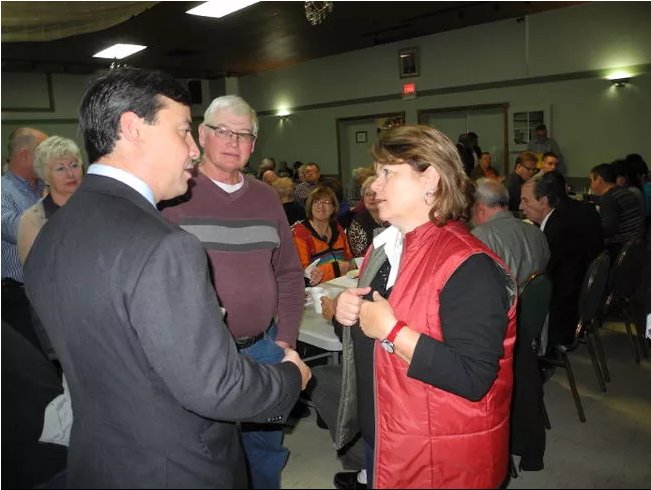









 Frank
Frank 